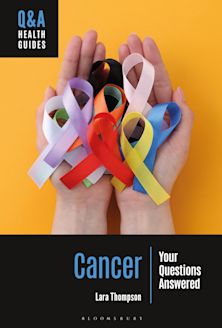- Home
- ACADEMIC
- Nursing, Health & Medical
- Nursing and Health - Other
- Medical Catastrophe
You must sign in to add this item to your wishlist. Please sign in or create an account
Description
Unnecessary death rarely happens at the hands of doctors, but it does happen. Sometimes the cause is medical error. But sometimes the cause is politics. The issues underlying many medical catastrophes are numerous: a power struggle between providers, uncertainty over who’s in charge, hesitation to practice good medicine for fear of being fired, specialization run amok, part-time doctoring. Doctors often prefer to ignore the problems, but patient safety demands that they be aired.
And so does the future of the medical profession. Beneath the politics lies confusion: Doctors no longer know who they are. They don’t know how much authority they should wield. They don’t know what distinguishes them from other healthcare professionals. They don’t what about being a doctor should make them proud. When doctors lack a firm sense of who they are, the whole of medicine lacks an essential core, giving rise to personal and professional politics—and catastrophes. Patients may be relying on a system that has veered off course.
In dramatic and revealing stories of patients in the operating room and interactions with colleagues, Ronald W. Dworkin traces his path from medical school to anesthesiology residency to his early years in private practice, with the experiences of his father and grandfather, also doctors, hovering overhead, in his quest to answer the question: What is a Doctor? Sometimes funny, sometimes scary, sometimes poignant, the story of what it means to be a doctor in today’s medical setting comes to life, as Dworkin outlines the contours, the challenges and rewards, of modern medicine, and how it must be rescued in order to preserve the profession and protect patients from disasters.
Table of Contents
2. Impatience and the Need to be Macho
3. The Trap of Over-specialization
4. When No One is in Command
5. When Patients Become Consumers
6. A Tale of Two Offices
7. When Doctors Lose Control of Their Own Personalities
8. When Doctors Lose Control of Their Own Rules
9. The Problem of Going Part-time and When to Retire
10. I Come Full Circle
11. What is a Doctor?
Product details
| Published | Mar 17 2017 |
|---|---|
| Format | Ebook (PDF) |
| Edition | 1st |
| Extent | 1 |
| ISBN | 9798216241744 |
| Imprint | Rowman & Littlefield Publishers |
| Publisher | Bloomsbury Publishing |
About the contributors
Reviews
-
Have you ever wondered what goes on behind closed doors at your doctor’s office or local hospital? The medical world is a mystery to those who don’t work in health care, and Medical Catastrophe gives readers insight into the harrowing, humorous, and sometimes dehumanizing world of medicine. Dworkin is a practicing anesthesiologist and political philosophy instructor, and his 'confessions' delve into the sometimes unpleasant truths of hospital politics and industry standards. Exploring the question of what it means to be a doctor, Dworkin traces his experiences, from time spent in his father’s medical practice as a child to his residency training, and, finally, as a part-time practitioner. Although the tone can at time seem self-important, Dworkin addresses key issues facing modern medicine, including how much autonomy doctors should have and how to improve practitioners’ quality of life. A solid introduction to the hidden world of hospital medicine, Medical Catastrophe is sure to start thought-provoking conversations about complex topics, such as the balance between professional knowledge and patient-centered care.
Booklist
-
Dworkin’s new book combines a variety of sensibilities: the savvy professional, the humanist conversant with the recurrent types and infinite variations of character, and the hardheaded observer of the everyday operations of complex organizations. It is built around harrowing autobiographical tales—transpiring in operating rooms, cramped and dingy sleeping quarters for on-call residents, hospital corridors, and medical conferences—illustrating the proliferation of impatience, overspecialization, cynicism, and alienation among physicians. It provides historical reflections—informed by the experience of his father and grandfather, both physicians—on the transformation of the medical profession over the last century. And it offers lyrical reflections on the hopes, fears, and wayward passions of doctors struggling to maximize profits and minimize overtime, save lives, avoid malpractice disaster, and comply with the imperatives of political correctness, all while maintaining self-respect in a profession that has undergone seismic changes that have been internalized but not understood.
RealClearPolitics
-
Despite the dramatic title, most of the book’s content reflects something closer to the subtitle, Confessions of an Anesthesiologist. Indeed, it reads like a confession in the multivalent sense that Augustine used the term: it’s the story of one doctor’s search for vocational identity set alongside a critique (including plenty of self-critique) of the history, structures, and entanglements of modern medicine. Stories of 'medical catastrophes,' most of them near-misses due to a combination of human error and complex relationships in the operating room, frame the narrative. But underneath those dramatic stories is a deeper, well-articulated vocational question: what does it mean to balance the traditional roles of the doctor—gentleman, technician, scientist, benefactor—with the leadership required of doctors in today’s world? These questions unfold with an escalating sense of urgency as the book proceeds.
The Christian Century
-
[A]nesthesiologists will find this examination of the problems facing doctors and medicine, from an anesthesiologist’s perspective, to be informative, thoughtful, and thought-provoking.
California Society of Anesthesiologists
-
The only reason a reader might put down this medical memoir unfinished is because the dramatic moments of hope and risk and despair from Ronald Dworkin’s career can be overwhelming — so a brisk walk or a nice cup of tea or some other restorative distraction is called for before plunging back in…. Dworkin should be praised for offering a book that somehow manages to unite hopeful idealism and clear-eyed realism; aspiring physicians will learn much from it.
The New Atlantis
-
Dr. Ron Dworkin's riveting Medical Catastrophe provides a revealing peek behind the curtain of the real business of medicine -- the ego clashes, the confusion, and the internal politics governing doctors' decisions. He may not have intended to scare patients, but he sure scared this reader.
Tevi Troy, CEO of the American Health Policy Institute and former Deputy Secretary of the US Department of Health and Human Services


































